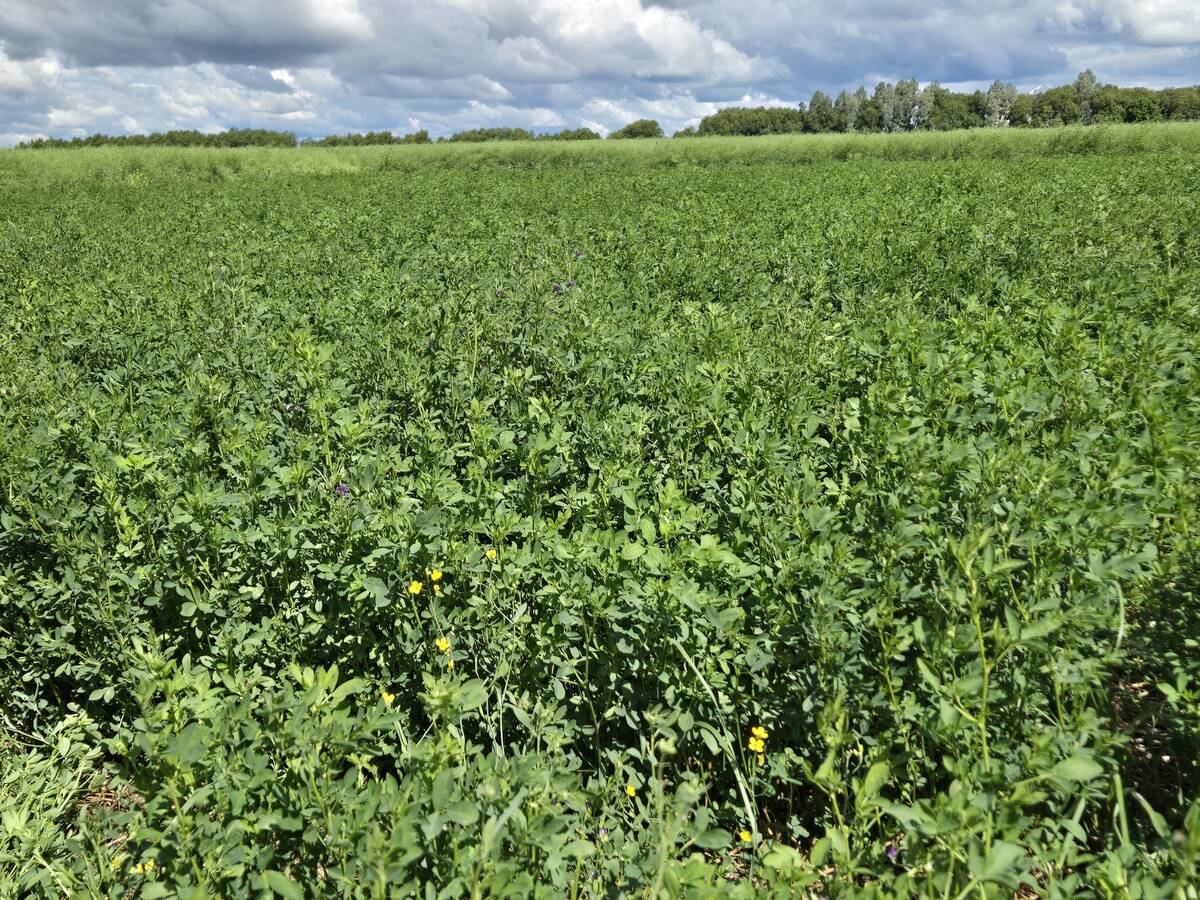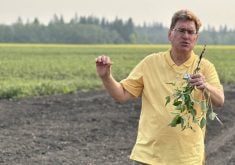An environmentalist says intensive agricultural operations are the best
use of Canada’s precious land resource.
Speaking at the Saskatchewan Cattle Feeders Association annual meeting
in Saskatoon on Feb. 1, Patrick Moore said these kinds of operations
can help curb worldwide deforestation.
Moore, a founding member of Greenpeace who now heads the consulting
firm Greenspirit, said the need to produce more food for a growing
population fuels the drive to cut forests. He said there is a great
Read Also

Manitoba Parkland research station grapples with dry year
Drought conditions in northwestern Manitoba have forced researchers at the Parkland Crop Diversification Foundation to terminate some projects and reseed others.
opportunity to teach people how to adapt intensive agricultural
practices to use less land to grow more food.
He said people need to become better stewards of the earth through
education, scientific research and technological advancements.
“We are able to grow more food per acre due to science,” he said.
“We have to really understand the environment we work in and not trash
the planet, but garden it in a beautiful way, making sure there’s
habitat for other species.”
He said he has switched from protesting whale hunts in a Zodiac to
writing books and giving speeches promoting sustainable resources like
forestry.
“I went from the politics of confrontation to the politics of building
consensus.”
Moore, who holds a PhD in ecology, felt “environmental extremists” had
replaced logic and scientific data with sensationalism and myths.
As one example, he said the benefits of genetically modified organisms
far outweigh the hypothetical and contrived risks.
While climate change must be rigorously monitored, Moore said it
presents more of “an economic problem than an ecological one.”
The earth will adapt, he said. There might be floods in India, but
there might also be more acres available to grow food in northern
countries.
“It will cost less to adjust to climate change than to fight it,” he
said.
“The question is, can we adjust?”
Moore, who is a native of Vancouver Island, said the federal
government’s proposed Environmental Species Act should be a positive
program that will “reward not punish” farmers for living near these
species.
Costs for such programs should be borne equally by both urban and rural
people, he said.
















